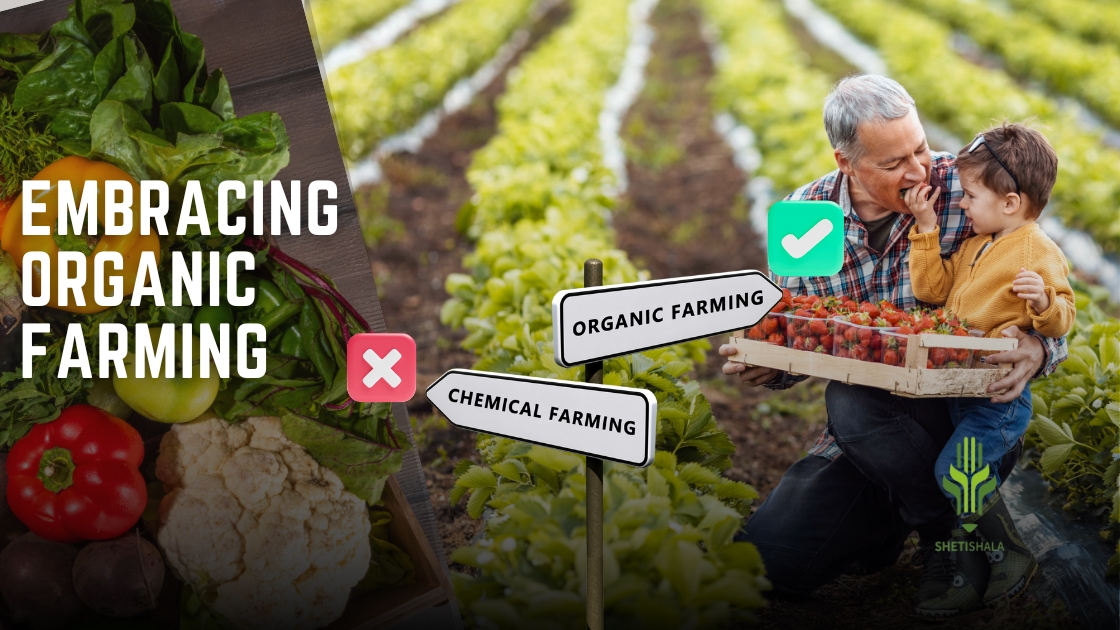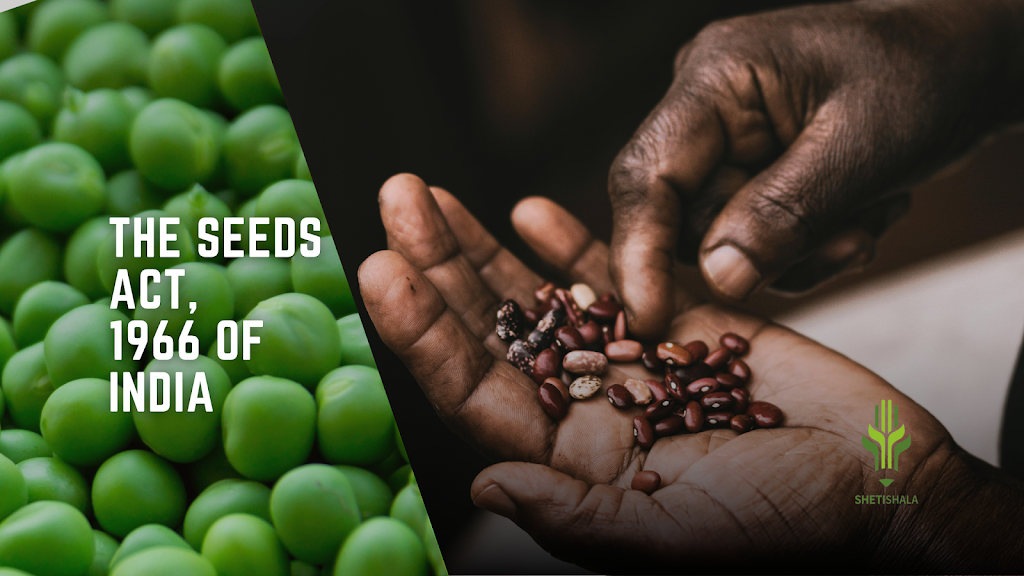Introduction
In recent years, organic farming has gained significant attention and popularity as more people become aware of the environmental and health impacts of conventional agriculture. This method of farming, which relies on natural processes and eschews synthetic chemicals, offers a sustainable alternative that benefits not only the environment but also consumers and farmers. This blog explores the principles of organic farming, its benefits, and its challenges, and highlights its role in creating a sustainable future.

what is organic farming?
Organic farming is a method of agriculture that emphasizes the use of natural processes to maintain soil fertility, control pests, and promote healthy crop growth. It avoids the use of synthetic pesticides, fertilizers, genetically modified organisms (gmos), and antibiotics in livestock. Instead, organic farming relies on techniques such as crop rotation, composting, green manure, biological pest control, and polyculture.
core principles of organic farming
Soil health:
maintaining and improving soil health is fundamental to organic farming. This is achieved through crop rotation, the use of cover crops, and adding organic matter like compost and manure to the soil. Healthy soil not only supports plant growth but also stores carbon, which helps mitigate climate change. Practices like no-till farming, which minimizes soil disturbance, and the use of natural fertilizers enhance soil structure and fertility. These methods increase microbial activity, promoting a robust ecosystem beneath the surface. Biodiversity:
Organic farms promote biodiversity by growing a variety of crops and maintaining natural habitats for beneficial insects and wildlife. This diversity helps prevent pest outbreaks and diseases, reducing the need for chemical interventions. By fostering a diverse ecosystem, organic farms create a natural balance where pests are controlled by their predators, and plant diseases are less likely to spread. This approach not only supports the health of the farm but also contributes to the preservation of local wildlife and plant species.
Ecological bal2ance:
Organic farming strives to work in harmony with nature, creating a balanced ecosystem. Techniques like companion planting, where certain plants are grown together to benefit each other, and the use of natural pest predators are used to manage pests and diseases. For example, planting marigolds alongside tomatoes can deter nematodes, while attracting beneficial insects like ladybugs to control aphids. This holistic approach reduces the need for chemical interventions and promotes a healthier environment.
Animal welfare:
Livestock in organic farms are raised in conditions that allow for natural behaviours. They have access to outdoor spaces, and their feed is organic and free from antibiotics and growth hormones. Organic farming practices prioritize the well-being of animals, providing them with a diet free from synthetic additives and ensuring they live in stress-free environments. This not only improves the quality of life for the animals but also leads to healthier, more nutritious animal products.
Sustainability:
Organic farming practices aim to reduce pollution, conserve water, and use resources efficiently, ensuring that farming remains viable for future generations. Techniques like rainwater harvesting, mulching, and drip irrigation help conserve water, while composting and recycling organic waste reduce the farm’s environmental footprint. Sustainable farming practices are designed to maintain the health of the environment, ensuring that agricultural activities do not deplete resources or harm ecosystems.
Benefits of organic farming
Environmental benefits
Reduced chemical use:
By avoiding synthetic pesticides and fertilizers, organic farming reduces the pollution of water, soil, and air. This helps protect ecosystems and wildlife. Pesticides can contaminate water sources, harming aquatic life and potentially affecting human health. Organic farming practices eliminate this risk, contributing to cleaner and safer environments.
soil health:
Practices like composting and crop rotation improve soil structure, fertility, and microbial activity. Healthy soil can sequester more carbon, helping to mitigate climate change. Organic matter in the soil acts as a sponge, retaining water and nutrients, and providing a habitat for beneficial microorganisms that support plant growth.
**water conservation**:
organic farming often employs water-saving techniques such as mulching, which reduces evaporation, and drip irrigation, which delivers water directly to the plant roots. These methods reduce water usage and preserve this vital resource. Efficient water management is critical in areas prone to drought, ensuring that farms can continue to produce food even in challenging conditions.
**biodiversity**:
By promoting diverse ecosystems, organic farms support a wide range of plant and animal species, enhancing resilience against pests and diseases. This biodiversity is essential for maintaining the health and stability of agricultural ecosystems. It provides a buffer against environmental changes and helps ensure the long-term sustainability of farming practices.
❖ health benefits
– Nutrient-rich produce :
Studies have shown that organic produce can have higher levels of certain nutrients, such as antioxidants, compared to conventionally grown produce. These nutrients are essential for maintaining good health and can help prevent chronic diseases. The absence of synthetic chemicals also means that organic foods are less likely to contain harmful residues.

Reduced exposure to pesticides:
Organic foods are grown without synthetic pesticides, reducing consumers’ exposure to potentially harmful chemicals. This is particularly important for vulnerable populations like children and pregnant women. Reducing pesticide exposure can lower the risk of health problems associated with these chemicals, such as developmental issues and certain cancers.
❖ economic and social benefits
support for local economies:
Organic farms often operate on a smaller scale and sell their products locally, supporting local economies and fostering a sense of community. By purchasing organic produce from local farmers, consumers contribute to the economic viability of their communities. This support helps keep small farms in business and ensures a more resilient local food system.
❖ fair wages and working conditions**:
Organic farming tends to emphasize fair labour practices, ensuring better working conditions and fair wages for farmworkers. Ethical labour practices are an integral part of organic certification standards, promoting social justice and equity in the agricultural sector. Fair treatment of workers leads to more stable and satisfied labour forces, which can improve productivity and product quality.
❖ challenges of organic farming
while organic farming offers numerous benefits, it also faces several challenges:
lower yields**:
Organic farms often produce lower yields compared to conventional farms, which can make organic products more expensive for consumers. This yield gap is primarily due to the reliance on natural inputs and practices, which can be less predictable and efficient than synthetic alternatives. Research and innovation are essential to closing this yield gap and making organic farming more competitive.
labour-intensive**:
Organic farming practices can be more labour-intensive, requiring more manual labour for tasks such as weeding and pest control. This increased labour requirement can raise production costs and make organic farming less attractive to some farmers. However, advances in technology, such as automated weeding robots, can help reduce labour demands.
certification costs**:
Obtaining organic certification can be costly and time-consuming for farmers, creating a barrier to entry for some. The certification process involves strict adherence to organic standards and regular inspections, which can be burdensome for small-scale farmers. Streamlining certification processes and providing financial support can help more farmers transition to organic practices.
Market access**:
Small-scale organic farmers may struggle to access larger markets dominated by conventional produce. Marketing organic products requires different strategies and resources, which can be challenging for individual farmers. Cooperative marketing initiatives and direct-to-consumer sales channels, such as farmers’ markets and community-supported agriculture (case) programs, can help improve market access.
The future of organic farming despite these challenges,
The future of organic farming looks promising. As consumer demand for organic products continues to grow, more farmers are adopting organic practices. Technological advancements are also helping to address some of the challenges faced by organic farmers.
#Innovations in organic farming: –
Precision agriculture**:
Technologies such as gaps mapping, drones, and soil sensors are helping organic farmers optimize resource use and increase efficiency. Precision agriculture allows farmers to apply inputs more accurately, reducing waste and improving productivity. For example, gps-guided tractors can plant seeds and apply organic fertilizers with pinpoint accuracy, minimizing soil disturbance and maximizing crop growth.
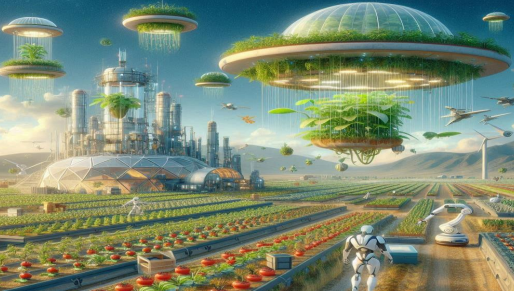
Organic pesticides and fertilizers**:
Advances in organic inputs are providing farmers with more effective tools to manage pests and enhance soil fertility without synthetic chemicals. Biological pest control agents, such as beneficial insects and microbial pesticides, are becoming more widely available and effective. Similarly, organic fertilizers derived from natural sources, like seaweed extracts and rock minerals, are improving crop nutrition and soil health.
Research and development**:
Ongoing research into organic farming practices is providing valuable insights and improving techniques, making organic farming more viable and productive. Collaborative efforts between universities, agricultural organizations, and organic farmers are driving innovation and disseminating best practices. Research projects focusing on soil health, pest management, and crop breeding are particularly important for advancing organic agriculture
❖ Case studies:
Success stories in organic farming to illustrate the impact and potential of organic farming, here are a few success stories from organic farmers around the world:
The Rodale institute (USA):
The Rodale institute has been a pioneer in organic farming research and education for over 70 years. Their farming systems trial, the longest-running study comparing organic and conventional farming, has demonstrated that organic methods can match or even exceed conventional yields while improving soil health and resilience to climate change. The institute provides training and resources to help farmers transition to organic practices.
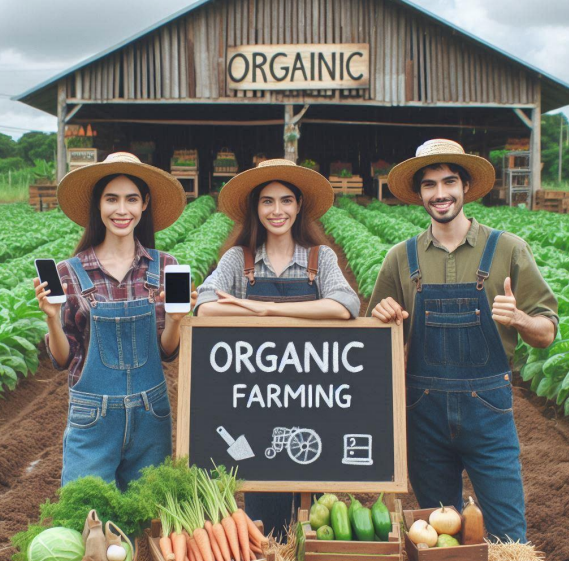
Polyphase farm (USA):
Joel salatin’s polyface farm is a renowned example of sustainable and profitable organic farming. Using a holistic approach that integrates crop and livestock production, polyface farm emphasizes rotational grazing, composting, and biodiversity. This method not only produces high-quality food but also enhances soil fertility and ecosystem health. Polyface farm’s success has inspired many farmers to adopt similar practices.
Harnessing modern technology in organic farming:
A new era of sustainability organic farming, traditionally seen as a return to simpler, more natural agricultural methods, is increasingly benefiting from modern technology and equipment. This fusion of old and new practices is enhancing efficiency, productivity, and sustainability. Here’s how modern technology is transforming organic farming.
# precision agriculture
Precision agriculture is revolutionizing organic farming by enabling farmers to optimize their use of resources:
GPS and GIS technology**:
These systems help farmers create detailed maps of their fields, monitor soil conditions, and manage crops with precision. This allows for targeted application of organic fertilizers and water, reducing waste and enhancing productivity.
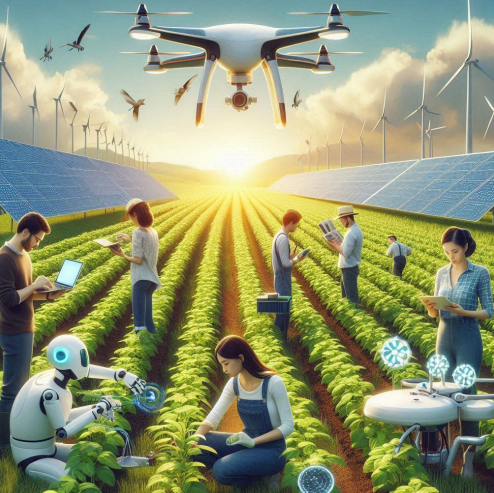
Equipped with advanced cameras and sensors, drones provide real-time data on crop health and soil conditions. This enables farmers to detect and address issues like pest infestations and nutrient
soil sensors**:
These devices measure soil moisture, temperature, and nutrient levels. By providing real-time data, soil sensors help farmers manage irrigation systems more effectively, conserving water and improving crop yields.
for more information visit out blog – Nanotechnology In Agriculture
# automation and robotics
Automation and robotics are reducing labour-intensive tasks and increasing efficiency in organic farming:
automated weeders:
Robots equipped with ai can distinguish between crops and weeds, removing the latter without the need for chemical herbicides. This maintains the purity of organic fields and reduces labour costs.
harvesting robots**:
These machines can pick fruits and vegetables quickly and accurately, minimizing crop damage and reducing reliance on manual labour during peak seasons.
# data analytics and artificial intelligence;
#data analytics and ai are: – empowering organic farmers with better decision-making tools:
predictive analytics**:
Ai models analyse data from various sources to predict crop yields, pest outbreaks, and weather patterns. This information helps farmers plan their activities more effectively, maximizing yields and minimizing risks.
supply chain management:
Data analytics streamline the organic supply chain, ensuring that produce reaches consumers fresh and reducing food waste. Efficient supply chain management enhances profitability for organic farmers.
### Sustainable farming practices
Modern technology supports sustainable practices central to organic farming:

Organic pesticides and fertilizers**: –
Innovations in natural inputs provide effective alternatives to synthetic chemicals, improving pest control and soil fertility.
water conservation technologies**: –
Systems like drip irrigation and rainwater harvesting reduce water usage, ensuring sustainable water management
conclusion: –
the integration of modern technology into organic farming is a game-changer, bridging the gap between traditional practices and modern efficiency. By embracing these innovations, organic farmers can enhance productivity, reduce environmental impact, and contribute to a sustainable future. As technology continues to advance, the potential for organic farming to meet global food demands sustainably becomes increasingly achievable.

